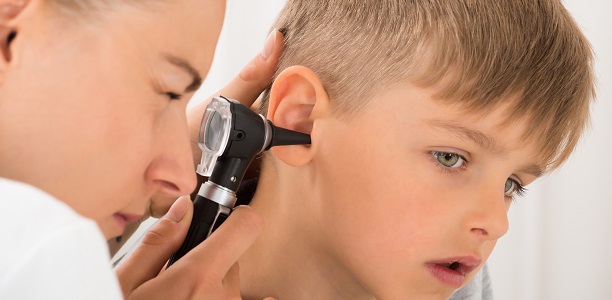Children who experience repeat ear infections in infancy have a significantly higher risk of ongoing problems with ear infections in later childhood, Telethon Kids Institute researchers have found.
Such children were more than five times as likely to experience ongoing problems with ear infections by the age of three than their peers who had not had repeat ear infections, and more than three times at risk of ongoing problems at age five.
In research published in the journal Child Care in Practice, a Telethon Kids team led by early childhood researcher Dr Brad Farrant described how they set out to investigate whether attendance at child care within the first year of life increased a child’s long-term risk of ear infections.
The team examined data from the Longitudinal Study of Australian Children, analysing the ear health history of 3,513 children at two-year intervals between the ages of 9 months and 9 years.
As they’d anticipated, their research confirmed earlier studies which have found that children placed in large group child care centres in infancy were more likely to contract ear infections than children in exclusive parental care or other forms of child care.
Dr Farrant said this was thought to be due partly to the fact children’s Eustachian tubes were not fully developed before the age of one year – making it easier for infections to migrate to the ear from the nose or throat – and partly to their increased exposure to large numbers of other children.
However Dr Farrant said that when the researchers sought to find out what impact early exposure to child care had on a child’s chances of future ear infections, they found child care attendance was only one piece of the puzzle.
“So attending child care centres in infancy was associated with an increased risk of ear infections; and having ear infections in infancy was associated with increased risk later in childhood – but the driving factor is problems with ear infections, whether you’re in child care or not. It’s not only children that go to day care that have these infections.
“Other, non-childcare-related risk factors for ear infection in early childhood include having an older sibling, having a chronic illness, or being male.”
Dr Farrant said it was important to note that only a small proportion of children – around one in 25 in the group studied – had ongoing problems with ear infections.
“It’s also important to note that we’re not talking about one isolated infection that is treated in infancy and goes away.
“Rather, our research suggests that it’s repeat infections in infancy that significantly increase the risk of ongoing problems as the child gets older.
“For example, in the group we studied, those who had ear infections in infancy had more than five times the risk of having ongoing problems with ear infections at three years of age, more than three times the risk at five years of age, and more than twice the risk at seven and nine years of age.”
Dr Farrant said the research suggested there needed to be a greater focus on preventing ongoing problems with ear infections in infancy.
“Part of that is what happens in the child care space, so robust infection control measures to prevent transmission between kids, exclusion policies and the like, but separately to child care, good quality health care when ear infections first crop up so that they don’t turn into ongoing problems.”
(Source: Telethon Kids Institute, Child Care in Practice)










